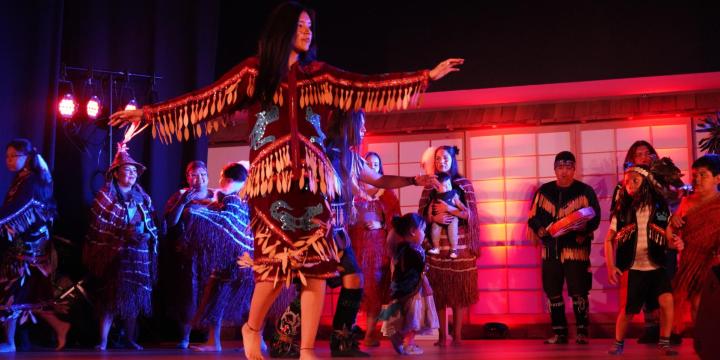
October is Women’s History Month in Canada, a time to celebrate the women and girls who have fought for our rights, successes and discoveries and to cheer on those who continue to do so.
The celebration falls in the month of October because it was October 18th, 1929 (also known as “Persons Day”) that the Canadian senate reversed the rule that women were not “persons” according to the British North America Act (now called the Constitution Act, 1867). The reversal of this ruling, the recognition that women are in fact people, enabled women to work for change in both the House of Commons and the Senate. Though this decision did not include all women (e.g., Indigenous women and women of Asian heritage and descent), it did mark critical progress in the advancement of gender equality in Canada.
This month, let’s uplift women and girls to realize their full potential by pursuing careers and goals across all industries and spaces including those in non-traditional fields. One such area that women were not accepted until recently, is sports. Let’s dive into a brief history of women at the Olympics.
We Are the Champions
Women’s History Month is a time to celebrate the diversity and strength of women, and what better way to showcase that than through the physical and mental fortitude exemplified at the most elite sporting event in the world, the Olympics. The first Olympic Games, held in 776 BC in Ancient Greece, were established as a celebration of masculinity and virility and a demonstration of strength and bravery. Like almost every aspect of society, it took millennia for women to be included in this prestigious event, with the London 2012 edition being the first time every country had a woman among its athletes and women could compete in all categories. That was only 12 years ago.
For too long, women have been an addition or included as “tokens” in many spaces. Although women have been able to enter the Olympics for some time, they were limited to sports "of a feminine nature,” like golf or tennis, or did not receive equal access to supports for training and nutrition.
In 2024, things are looking up. At the Paris 1900 Olympic Games, when the first women athletes competed, they only participated in five events: tennis, sailing, croquet, equestrian and golf. Only 22 women took part, constituting a meagre 2.2% of the 997 total competitors. In contrast, the 2024 Paris Olympics was the first time there was an equal number of men and women representing their countries among the 10,500 athletes, proudly displaying their endurance and perseverance.
Here are just a few women who have helped to break barriers and inspire new generations of women athletes:
Charlotte Cooper (United Kingdom)
Charlotte was one of the first women to participate in the Olympic Games, in Paris 1900, where she competed in tennis. She also became the first Olympic woman champion in history. Prior to this achievement, she was already an accomplished tennis player who had won three Wimbledon championships, and after her Olympic medal won two more.
Gertrude Ederle (USA)
Gertrude was an American swimmer who won three medals at the 1924 Paris Olympics. In addition, in 1926 she became the first woman to swim across the English Channel— covering 560 kilometres in 14 hours and 34 minutes. With this milestone, she beat the record of the five men who had completed the challenge before her. Her record stood for 24 years.
Alice Coachman (USA)
This high jumper was the first African-American woman to win an Olympic gold medal. She won it at the London Games in 1948 after qualifying for the Games by breaking a record. Born into a humble family, during her training she had to combine her athletic scholarships with cleaning jobs at the facilities where she trained. She won 25 national titles in the high jump, 50m, 100m and 4 x 400m.
Enriqueta Basilio (Mexico)
Enriqueta was the first woman to light the Olympic flame. She did so at the age of 20, at the opening of the Mexico City Games in 1968, where she was participating as part of the Mexican athletics team. At that time, she was already the national champion in the 80-metre hurdles.
Nadia Comaneci (Romania)
Nadia became one of the most important gymnasts in history by winning nine Olympic medals—five of which were gold. At just 14 years old, at the 1976 Montreal Games, she scored a 10—the first ever "perfect" score in history—on the uneven bars. She set a new standard in the discipline and also became one of the youngest medalists.
Serena Williams (USA)
Serena Williams has remained at the top of the tennis elite for more than two decades. She won four Olympic golds and a total of 39 Grand Slam titles—23 of them singles. During her career, she advocated equal pay at major competitions such as Roland Garros and Wimbledon.
Simone Biles (USA)
Considered one of the greatest gymnasts of all time, Simone Biles is the most decorated gymnast in history in both men's and women's gymnastics. She has won ten Olympic medals, seven of them gold. Biles is also one of the key figures in raising awareness for mental health issues at all levels—including top-level sport.
The Hurdles We Still Face
Despite discrimination, so many women have gone on to prove they belong in a space that was previously dominated be men. That they can be strong, determined, athletic and fierce, and women do not need to fit a mold determined by the patriarchy.
As heartening as the equal representation and stories of support at the 2024 Olympics are, there was also more scrutiny than ever on women’s bodies, gender conformity and rampant sexism. Although the International Olympic Committee distributed guidelines to the media, urging “sport appeal, not sex appeal,” the order was not respected by the media or by many followers online.
Once again, women’s bodies were scrutinized and debated, with controversial comments about the amount of skin showing or not showing in women’s uniforms. The French team told its Muslim women athletes that, because of the country’s secularism laws, they could not wear hijab in competition. Women’s genders were publicly questioned and debated because they did not fit a preconceived mold of physical appearance, putting those athletes at risk of physical and mental harm.
Although many negative comments were posted on social media, mainstream media was guilty of sexist remarks as well. The media must recognize and acknowledge its power to harm, but we all have a responsibility to prevent the spread of harmful misinformation and hate.
Despite these challenges, women continue to persevere. This discrimination is not new, yet women show up and break barriers anyway. There were many examples of this strength at the Paris 2024 Olympics, like 27-year-old Ilona Maher, a Team USA rugby player, who says she uses internet trolls as motivation and boldly embraces her feminine side, challenging the stereotype that women athletes can't be feminine. Similarly, the Algerian women's Olympic boxing champion, Imane Khelif, faced false claims about her sex and gender, but has used her story to raise awareness and is combating online hate speech by taking legal action, hopefully preventing further harm for future women competing.
So, this International Women’s History Month, let’s celebrate the strength of women. The mental and physical strength it takes to show up, knowing there are barriers to break through, discrimination to face, but persevering in spite of it. We celebrate those who have spoken up and pathed the way, but also those that face every day with challenges and keep fighting for a more equitable world regardless.

